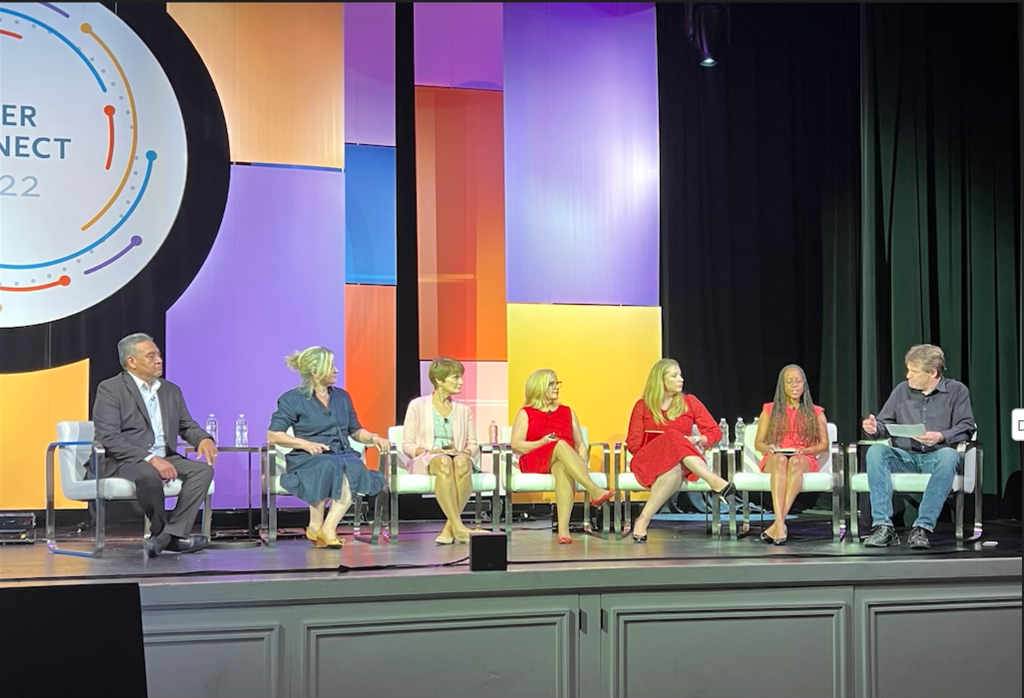Private-Public Partnerships Require Trust, Say State Broadband Officers
As federal funding rolls out, states and local communities must consider partnerships with local service providers.
Teralyn Whipple

NASHVILLE, June 14, 2022 – State broadband officers at Fiber Connect said Monday that developing trust between private and public sectors for partnerships will be essential for broadband builds in the wake of new federal funding programs.
“I don’t know how any of us can do our jobs at the state level if we didn’t want partnerships,” Tamarah Holmes, director of Virginia’s office of broadband, said Monday.
Partnerships exist when the public sector, or government agencies, hire private companies to build broadband infrastructure, though there are a variety of models that states may choose from.
“Building trust and responsibility with each other” will be essential, added Godfrey Enjady, president of the National Tribal Telecommunication Association. Providers and communities must be able to talk and coordinate with one another, he said.
It is encouraging, said Laura Spining, deputy associate administrator at National Telecommunications and Information Administration, that partnerships are shifting the dynamic by leading conversation with how they will meet public needs. The NTIA is tasked with handing out to states $42.5 billion as part of the Infrastructure, Investment and Jobs Act.
Jessica Simmons, deputy CIO for broadband at the Georgia Technology Authority, said she recognized the importance of partnerships and has developed a program, called the Broadband Ready Program, for communities to increase attractiveness to broadband providers. The program helps ensure that communities are connected to the state resources that will enable them to effectively deploy broadband and make it available more widely in the communities.
The program also includes ensuring that communities don’t impose to infrastructure investments by, for example, restricting pole attachments for fiber deployements.
“Partnerships will be tough,” said Enjady, “but, if you can forge them, I think you’ll see a lot of good come out of it.”
This comes after panelists at the Mountain Connect 2022 conference said last month that states that prioritize partnerships will be more successful in their pursuit of funding from the Broadband, Equity, Access, and Deployment program.








